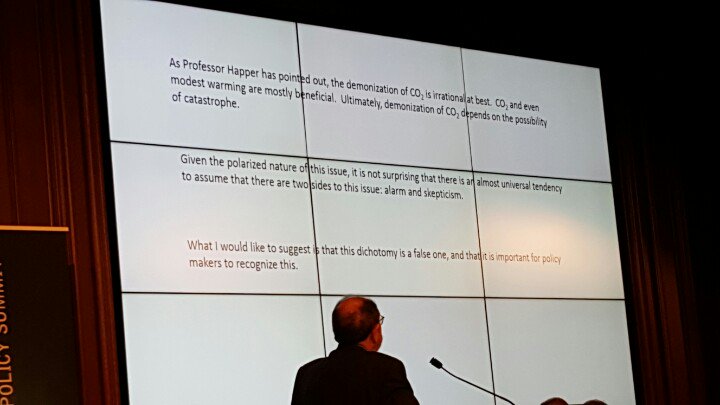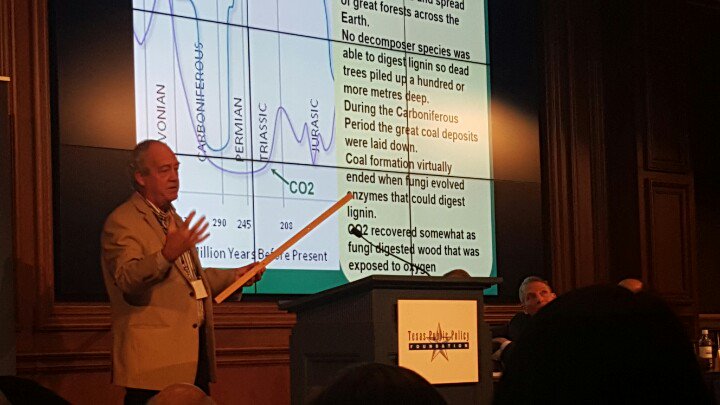Before the climate summit in Paris this month, let us review what actual scientists are saying.
Climate Scientist Dr. Richard Lindzen, an emeritus Alfred P. Sloan Professor of Meteorology at the Department of Earth, Atmospheric and Planetary Sciences at MIT, derided what he termed climate “catastrophism.”
“Demonization of CO2 is irrational at best and even modest warming is mostly beneficial,” Lindzen said.
“We are speaking of small changes 0.25 Celcius would be about 51% of the recent warming and that strongly suggests a low and inconsequential climate sensitivity – meaning no problem at all,” Lindzen explained.
“I urge you when looking at a graph, check the scales! The uncertainty here is tenths of a degree,” he noted.
“When someone points to this and says this is the warmest temperature on record. What are they talking about? It’s just nonsense. This is a very tiny change period. And they are arguing over hundredths of a degree when it is uncertain in tenths of a degree,” Lindzen said.
Lindzen also featured 2006 quotes from Scientist Dr. Miike Hulme, Professor of Environmental Sciences at the University of East Anglia, and Director of the Tyndall Centre for Climate Change Research, admitting that claims of a climate catastrophe were not the “language of science.”
{ “The discourse of catastrophe is a campaigning device,” Hulme wrote to the BBC in 2006. “The language of catastrophe is not the language of science. To state that climate change will be ‘catastrophic’ hides a cascade of value-laden assumptions which do not emerge from empirical or theoretical science,” Hulme wrote.
“Is any amount of climate change catastrophic? Catastrophic for whom, for where, and by when? What index is being used to measure the catastrophe?” Hulme continued. }

Princeton Physicist Dr. Will Happer, who has authored over 200 peer-reviewed papers, called policies to reduce CO2 “based on nonsense.”
“To call carbon dioxide a pollutant is really Orwellian. You are calling something a pollutant that we all produce. Where does that lead us eventually?” he asked.
“Coal, formed from ancient CO2, is a benefit to the world. Coal is CO2 from ancient atmospheres. We are simply returning CO2 to the atmosphere from which it came when you burn coal. And it’s a good thing since it is at very low levels in the atmosphere. We are in a CO2 famine. It is very, very low,” Happer explained.
Happer continued: “CO2 will be beneficial and crop yields will increase.” “More CO2 will be a very significant benefit to agriculture,” he added.
Happer then showed a picture of polluted air in China with the caption: “Real pollution in Shanghai.”

Ecologist and Greenpeace founding member Dr. Patrick Moore discussed the benefits of rising carbon dioxide in the atmosphere.
“We know for absolute certain that carbon dioxide is the stuff of life, the foundation for life on earth,” Moore said.
“We are dealing with pure political propaganda that has nothing to do with science,” he continued.
“The deserts are greening from rising CO2,” he added.

This is all shit that seems overly obvious to me, so I'd like to read some responses/discussion from the non-natural sciences crowd.












